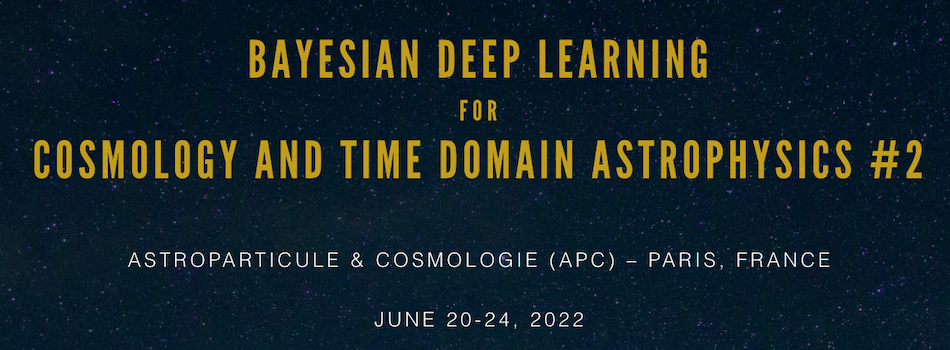Orateur
Description
One of the sources which Laser Interferometer Space Antenna (LISA) will observe are the signals from the Massive Black Hole Binaries (MBHBs) during their inspiral, merged and ringdown phases. To estimate physical parameters of these systems and their localisations one has to perform some form of Bayesian Inference. The most common approach to do this is through defining the likelihood function and producing posterior samples with some form of sampling technique. The disadvantage of the sampling methods is that they are slow. We propose the Bayesian parameter estimation method which is based on the Normalising flows a technique which allows to make an extremely fast mapping from the base sample distribution to the posterior conditioned on the data. This is implemented by learning this mapping in advance on the training dataset and then applying the trained map to the real data. We apply this method to the data from the first LISA Data Challenge (LDC) in order to evaluate how the estimated posteriors agree with the standard approaches. The main purpose of the fast parameter estimation is to use it for the multi-messenger observations and to be able to alert other observatories to perform follow-ups.
